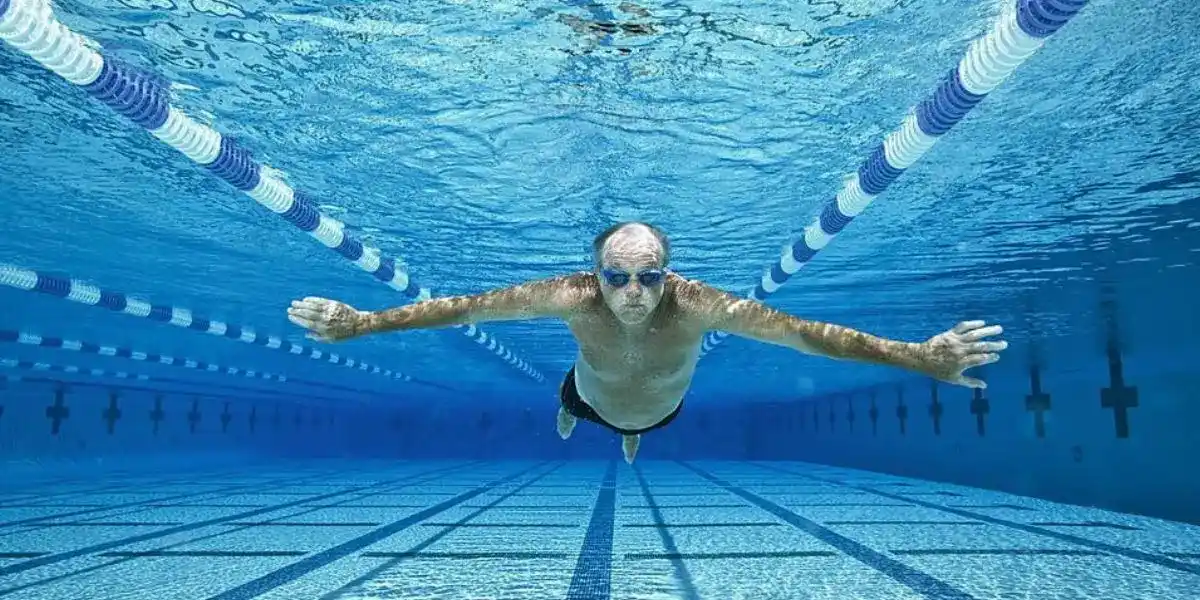Hypothyroidism is a common condition characterized by an underactive thyroid gland. It affects millions of people worldwide. This little butterfly-shaped gland in your neck regulates your metabolism, energy levels, and overall well-being. When it’s not functioning optimally, it can lead to a range of symptoms, including weight gain or difficulty losing weight.
If you have been diagnosed with hypothyroidism, you know how frustrating it can be to see the numbers on the scale climb despite your best efforts to maintain a healthy lifestyle. Weight management with this condition can be challenging, but there is hope. That is where this article comes in. This article will explore the best exercises for hypothyroidism to lose weight.
8 Exercises For Hypothyroidism
Hypothyroidism can lead to various symptoms, including fatigue, weight gain, and sluggishness. While medication is often necessary to manage hypothyroidism, incorporating exercise into your routine can support your thyroid health and overall well-being. Some of them are:
1. Walking
Walking is one of the simplest and readily available ways to engage in physical activity. It is low-impact and gentle on your body, making it an excellent choice for those with hypothyroidism. Daily walking can help boost energy levels, improve metabolism, and support weight management.
2. Yoga
Yoga is a comprehensive discipline that incorporates breathing exercises, meditation, and physical postures. It can be especially beneficial for individuals with hypothyroidism as it helps reduce stress, improve flexibility, and enhance overall well-being. The relaxation and mindfulness associated with yoga can also aid in managing the emotional and psychological effects of the condition.
3. Swimming
Swimming is a full-body, low-impact exercise that is easy on your joints. It gives your heart a great cardiovascular exercise without overstressing it. Regular swimming sessions can help with weight management, improve muscle tone, and increase energy levels.

4. Strength Training
Strength training, which includes exercises like weightlifting and resistance band workouts, can be incredibly effective in boosting metabolism. Building lean muscle mass through strength training can counteract the tendency of those with hypothyroidism to gain weight. Additionally, increased muscle mass can help improve overall strength and energy levels.
5. Hiking
Exploring the great outdoors through hiking offers a multifaceted, physically invigorating, and mentally rejuvenating experience. The diverse terrain and elevation changes encountered during a hike create a well-rounded workout that engages various muscle groups and provides an excellent cardiovascular challenge. This physical aspect of hiking promotes physical fitness and can be particularly beneficial for individuals with hypothyroidism.
6. Pilates
Pilates is a low-impact training technique emphasizing body awareness, flexibility, and core strength. Many people with hypothyroidism experience muscle stiffness and joint discomfort, and Pilates can help alleviate these symptoms. By improving posture and overall flexibility, Pilates contributes to a better quality of life for individuals with this condition.
7. Tai Chi
Tai Chi is a mind-body exercise incorporating deep breathing and fluid, leisurely motions. It is particularly effective for reducing stress, improving balance, and enhancing overall well-being. Stress management is crucial for individuals with hypothyroidism, as stress can exacerbate symptoms and disrupt thyroid function.
Tai Chi’s calming and meditative aspects make it an ideal choice to address these concerns. Incorporating exercise into your routine when you have hypothyroidism can be highly beneficial, but it’s essential to approach it with care and consultation with your healthcare provider.
8. Aerobics
aerobic exercises like dance workouts, aerobics classes, or jogging can significantly elevate your heart rate and improve your cardiovascular health. These activities serve as a dynamic catalyst for enhancing your overall well-being.
By incorporating them into your routine, you have the power to manage your weight effectively, increase your stamina, and experience a surge in vitality. The rhythmic motion and sustained effort required in aerobic exercises boost your heart’s efficiency and potentially reduce the risk of cardiovascular issues.
Conclusion
Remember that consistency is critical, and listening to your body throughout your fitness journey is essential. Consult your healthcare provider or a qualified fitness professional to create a tailored exercise plan that suits your needs and limitations.
While hypothyroidism may present certain obstacles, it should never be a reason to give up on your health and fitness goals. By incorporating the right exercises, adopting a positive mindset, and making healthy choices, you can manage your weight and improve your quality of life. So, keep moving forward on your path to better health, and remember that every step you take brings you closer to a healthier, happier you.